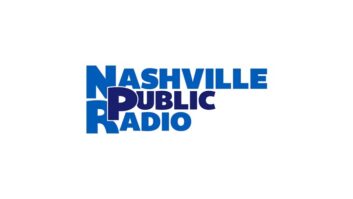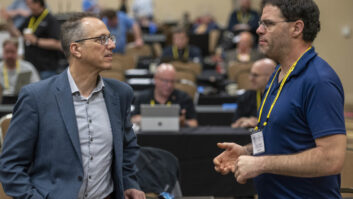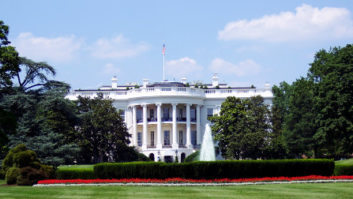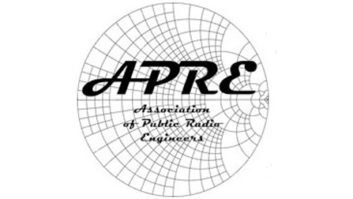Radio World’s “Guest Commentaries” section provides a platform for industry thought leaders and other readers to share their perspective on radio news, technological trends and more. If you’d like to contribute a commentary, or reply to an already published piece, send a submission to [email protected].
The author is CEO of the National Federation of Community Broadcasters, which has been serving the nation’s community radio stations since 1978. NFCB commentaries are featured regularly at Radio World.
As the National Federation of Community Broadcasters approaches its 50th anniversary in 2025, it’s time to reflect on the incredible legacy of community radio across the United States. For five decades, community radio has been the lifeblood of countless towns and cities, operating on shoestring budgets and powered mostly by volunteers. These stations have been indispensable for local news, cultural programming and fostering civic engagement.
While we celebrate this milestone, it’s also crucial to preserve this legacy for future generations. As technology continues to evolve, much of community radio’s history risks being lost if not properly archived. That’s where the American Archive of Public Broadcasting (AAPB), a collaboration between the Library of Congress and GBH Boston, plays a critical role.
AAPB aims to safeguard the most significant public media content produced over the past 60 years, including efforts like the HBCU Radio Preservation Project, in which NFCB is also involved.

The Underrated Impact of Community Radio
While national broadcasters often receive the spotlight, local community stations have been just as pivotal in shaping the American media landscape. From covering local protests to broadcasting community festivals, these stations often serve as the first witnesses to important events. Yet, many of these moments remain undocumented and at risk of being forgotten.
As NFCB’s 50th anniversary approaches, we are encouraging our members to contribute their content to AAPB’s collection, ensuring that this vital history is preserved.
The Vital Role of Community Radio
Community radio offers a unique window into the lives of everyday people, amplifying voices often underrepresented in mainstream media. Broadcasting in multiple languages, these stations celebrate cultural diversity and provide platforms for immigrant and Indigenous communities. They offer authentic stories from rural, underserved and marginalized regions across the country.
For example, a community station might document a natural disaster’s impact on a small town or provide a platform for local leaders to discuss pressing issues. While these stories may never make it to national airwaves, they are crucial for understanding the cultural and political fabric of America. When preserved, these broadcasts serve as invaluable primary sources for historians, journalists, educators and future generations.
Sadly, many community stations archive their content on outdated formats like cassettes and VHS, or store digital files at risk of deteriorating. Often, they lack the resources, staff or expertise to preserve their materials properly. This is where the AAPB comes in, offering community stations a chance to ensure their content remains accessible for decades to come.
Preserving Diversity in Media
One of the greatest strengths of community radio is its reflection of the diverse audiences it serves. These stations often reach multilingual communities, offering vital news, music and cultural programming in languages other than English. For many immigrant communities, community radio provides not just information but also a sense of connection to their cultural heritage. Whether it’s local discussions about immigration policy or traditional music programs, these broadcasts resonate deeply with their listeners.
Archiving this content ensures that the voices of historically marginalized-communities are preserved. The programs created by these stations document perspectives and experiences often overlooked by larger media outlets. From local musicians sharing traditional songs to discussions of social justice, community radio offers a wealth of cultural knowledge that must be safeguarded for future generations.
Steps for Community Stations to Archive Their Content
NFCB’s 50th anniversary is an opportunity to not only celebrate but also to inspire our member stations to archive their own histories. Here’s how community radio stations can contribute to the AAPB:
- Identify Key Content: Start by selecting content that best represents your community’s unique history — interviews with local leaders, coverage of cultural events or social movements.
- Connect with AAPB: The AAPB provides resources and guidance to help stations archive their content, ensuring it meets preservation standards.
- Preserve Multilingual Programming: For stations broadcasting in multiple languages, it’s crucial to prioritize the preservation of linguistic diversity. Programs in languages other than English must be safeguarded to capture the full spectrum of American experiences.
- Plan for the Future: Develop regular archiving practices to ensure today’s content is preserved for future generations. The AAPB can help you create a long-term plan that fits your station’s needs.
Looking Forward: The Importance of Archiving
As NFCB celebrates its 50th anniversary, we’re not just reflecting on the past — we’re looking to the future. Preserving today’s community radio content is vital for shaping tomorrow’s media landscape. The stories and voices documented by community stations offer authentic local perspectives that are often absent from national discussions. By archiving this content, we ensure that future generations have access to a rich cultural and political history.
In an era where mainstream media dominates, it is more important than ever to preserve the voices of local communities, especially those from historically-marginalized groups. NFCB urges stations across the country to recognize the value of their content and take steps to archive it with the AAPB. By doing so, we can ensure that the legacy of community radio not only endures, but also continues to inspire and educate for years to come.
For more information on how your station can contribute to the American Archive of Public Broadcasting, visit their website or contact their team to get started. Together, we can safeguard the voices and stories that define who we are as a nation.







